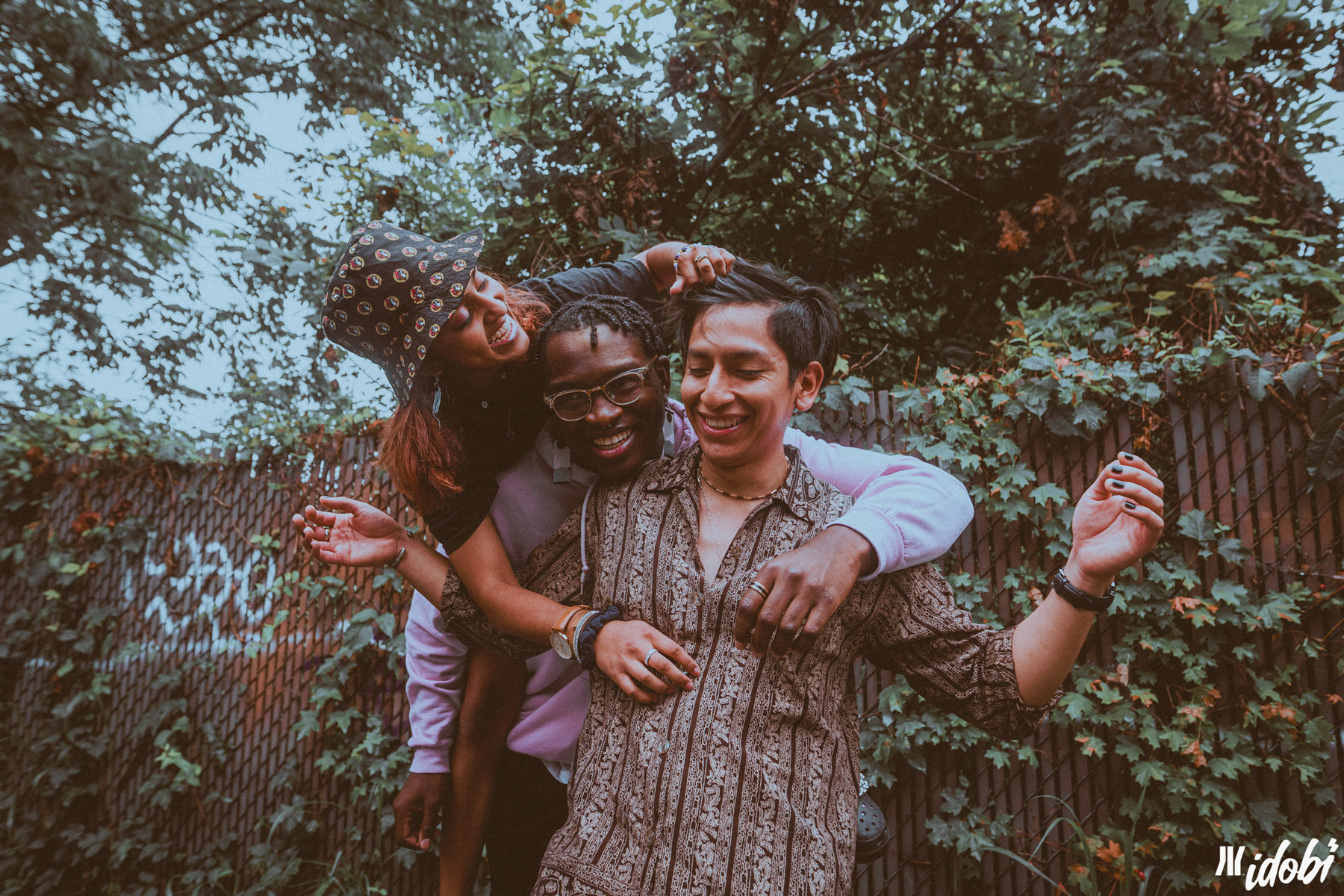
I’ve been a pop-punk/alternative fan for a long time, so trust me when I say I know how white the scene is, especially since I tend to be one of the only people of color in any given concert crowd. So when I get a chance to catch up with Pinkshift, a Baltimore-based band full of BIPOC people—including a singer the same color as me—I can’t help but gush for a few minutes as soon as the three of them join the Zoom call.
“Our existence is already political.”
“Tony Kanal of No Doubt…I think that was the first time I was like, oh shit, brown people can do this, immigrants can do this,” says singer Ashrita Kumar when I ask the band about the first time they saw a person of color on stage. Kumar and the rest of Pinkshift—guitarist Paul Vallejo and drummer Myron Houngbedji—are sitting in their individual family homes when we connect. Kumar continues, “I actually don’t know if [Kanal] is an immigrant or like a child of immigrants but he’s not from ‘here’ originally, so that’s cool.”
Houngbedji nods along. “I remember learning about Tosin Abasi from Animals as Leaders, like, holy shit, I didn’t think I knew any Black guitarists in that scene in general. Compounded by the fact that he’s from where I grew up, that’s kind of insane.” He’s also quick to mention Skyler Acord of Issues playing bass for twenty one pilots. “I’m usually one of like three Black people in the crowd, so I love seeing him on [that] stage and social media.”
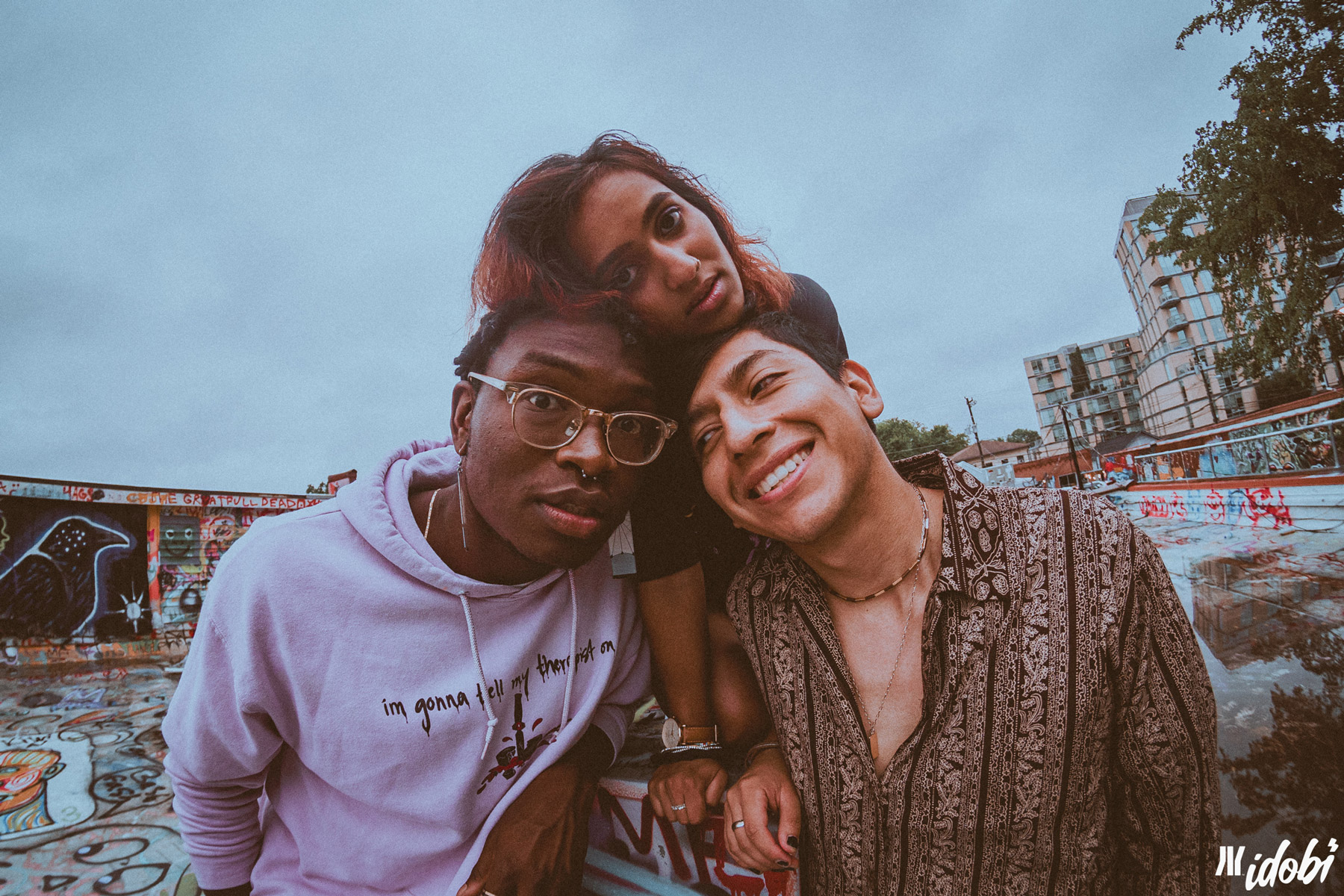
Vallejo jumps in to contribute. “I think the first one I saw was Dave Brownsound from Sum 41, in the ‘In Too Deep’ video, I was like ‘there’s a brown dude coming out of the water!’” He points to the PRS guitar hanging on the wall behind him. “That was my first guitar—based solely on his guitar.”
“It kind of clicked a little bit more at the end of high school,” Vallejo continues. “When Pierce the Veil headlined Warped. I listened to them before that but I never actually saw them live until then.” He pauses, sounding impressed. “Their thing is to really do the whole Mexican thing…like they came on to mariachi music, like being very unapologetically themselves…and there’s a sea of white people clapping.” He laughs, adding, “Like the bassist is wearing a full Mexican national soccer team jersey and I try to rip that off, I wear the same thing when I play some shows.”
It makes sense, then, that Pinkshift first started to come together after Kumar and Vallejo met in college. “We started off making covers and then that turned into writing original music. When we realized that we both wrote music on our own, by the end of 2018, we sought out other people who could be in the band.” Vallejo jokes that their college, “Doesn’t have a music scene, it’s very nerdy,” but they were lucky to stumble upon Houngbedji practicing drums in the music center and everything clicked.
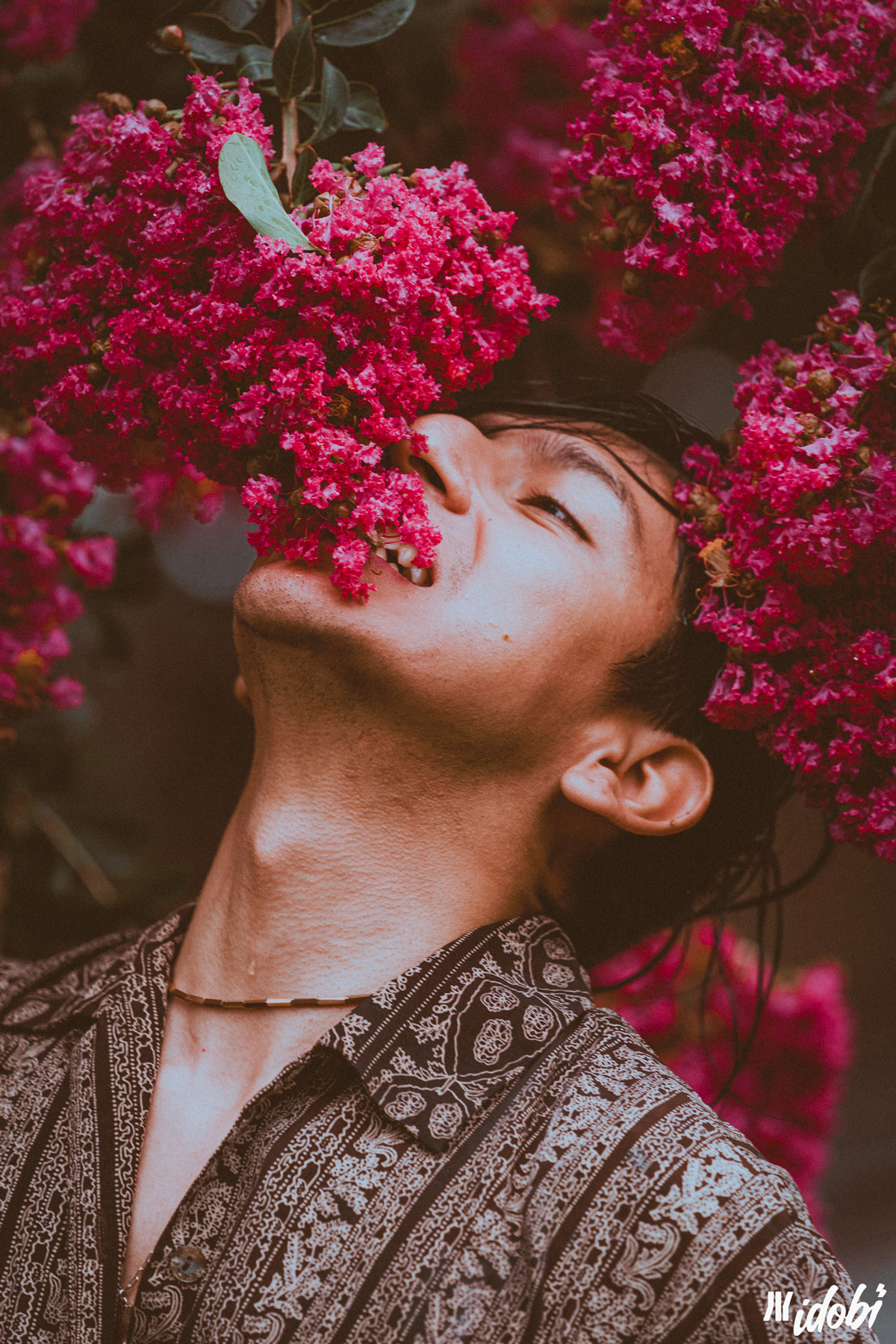
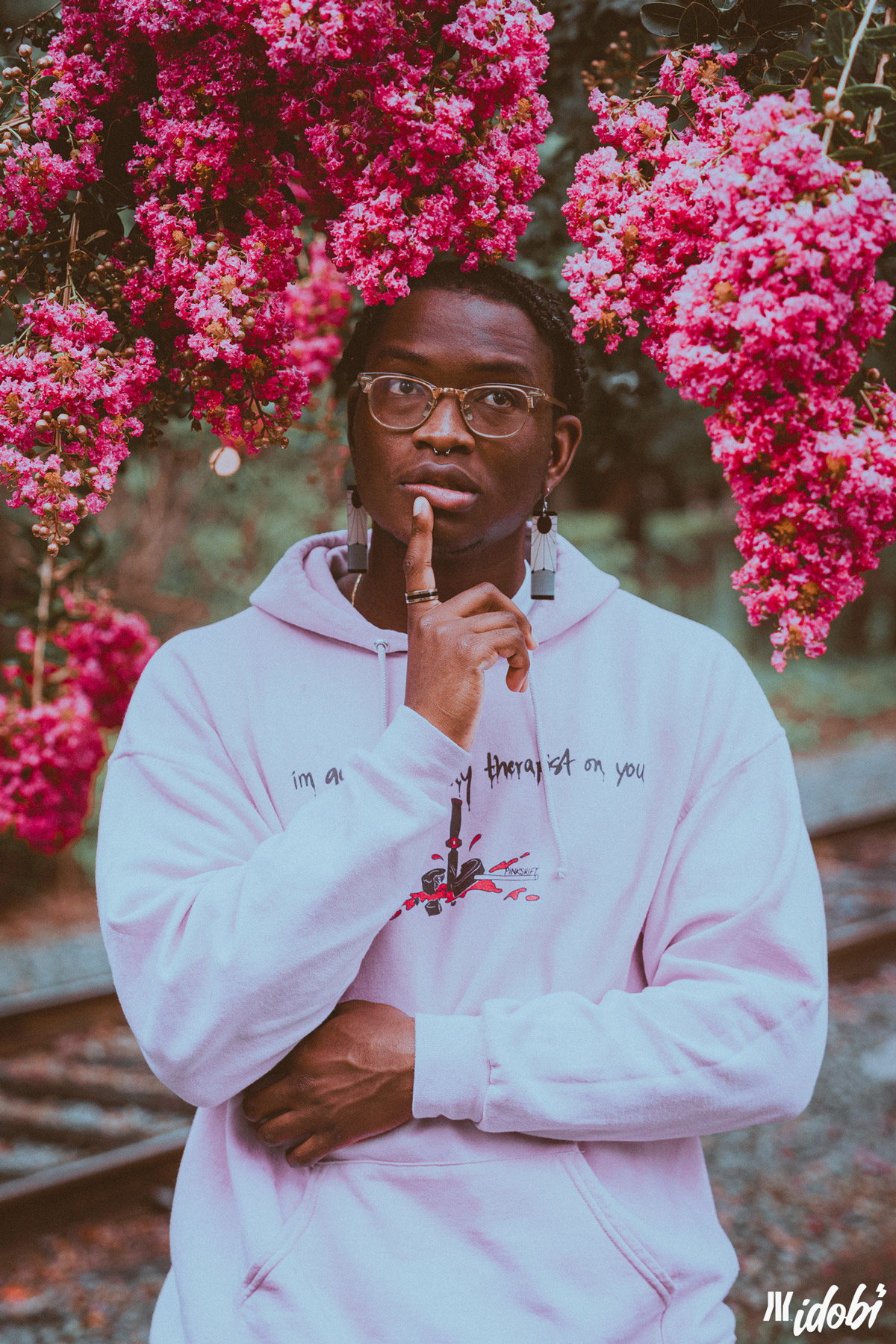
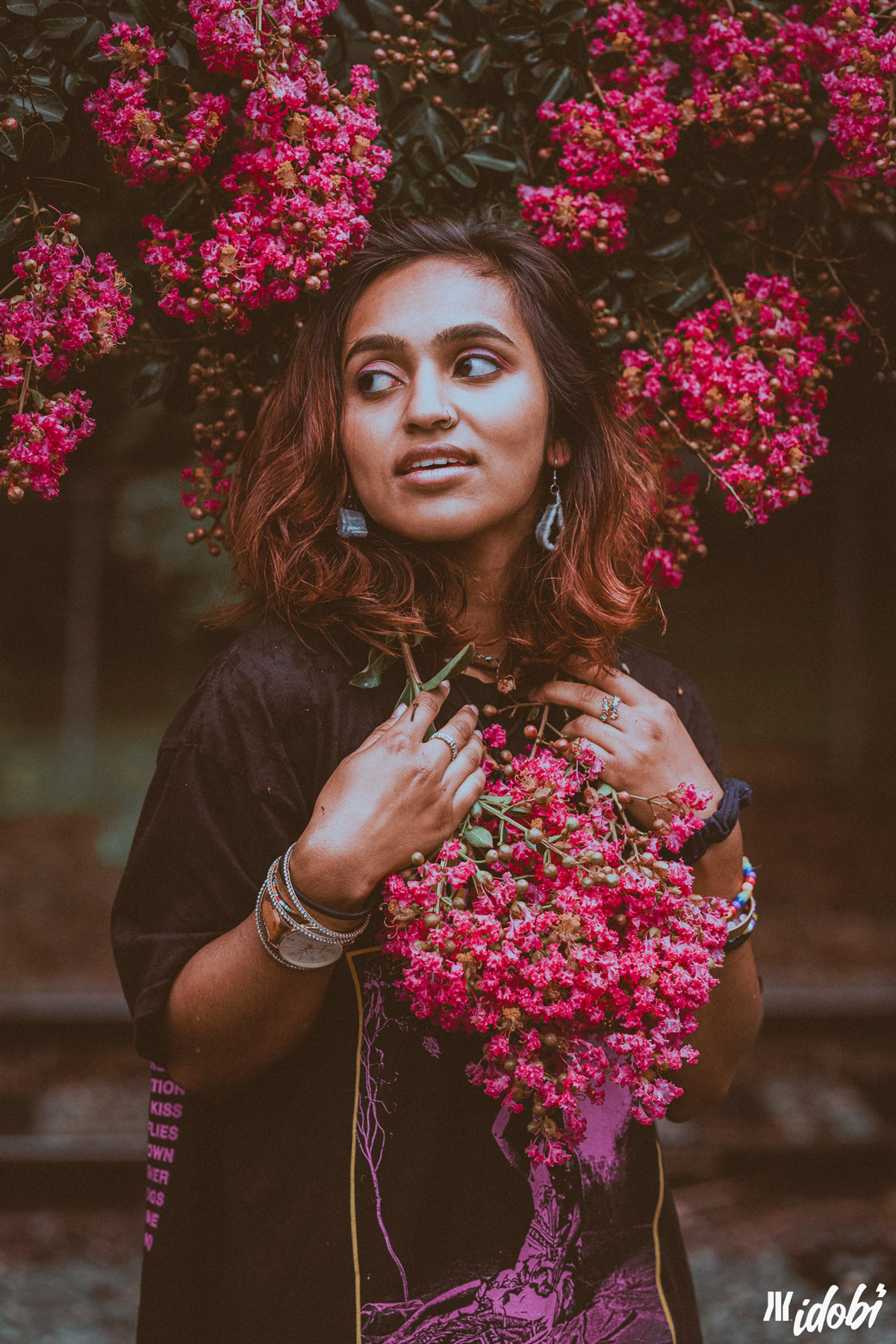
“They had posters all over campus and I had one in my room,” says Houngbedji. “I was just learning how to play drums at that point…and I didn’t know who they were, I thought they were just a bunch of white kids.” Vallejo and Kumar laugh at this with Kumar adding, “We should’ve put pictures of ourselves on the flyers.” “But then we knew no one would respond,” jokes Vallejo.
“People started actually listening to us and then we got emails and we were like, ‘Guys, I think we’re a band’.”
There’s a nice sense of camaraderie amongst the three of them during our call as they trade-off for answers and occasionally finish each other’s sentences. You get the idea they treat each other like family, each member an equal partner. While sharing their origin story, Kumar explains, “I don’t know why we say we started in 2018 because [Houngbedji] wasn’t even part of the band until 2019.” To be fair, they originally were playing just to have fun, even going under a completely different name (“Sugar Crisis—we decided to change it because it had too many syllables”) before starting to take their careers seriously.
“We didn’t start really playing shows at all until like fall 2019,” says Kumar. “We were playing around trying to find shows that would just take an opener that wouldn’t draw anybody.” They laugh. “We got stuck at the end of the bill on a lot of shows in DC which is pretty brutal. But I think we were just starting to be recognized by people—not like recognized in public but like people would come to our shows.” They admit the band had “like zero fanbase and we were still going on tour.” Vallejo adds that they had no music online but it didn’t stop the trio from planning a mini headlining run—one that was supposed to start on March 14, 2020 (we all know where this is going).
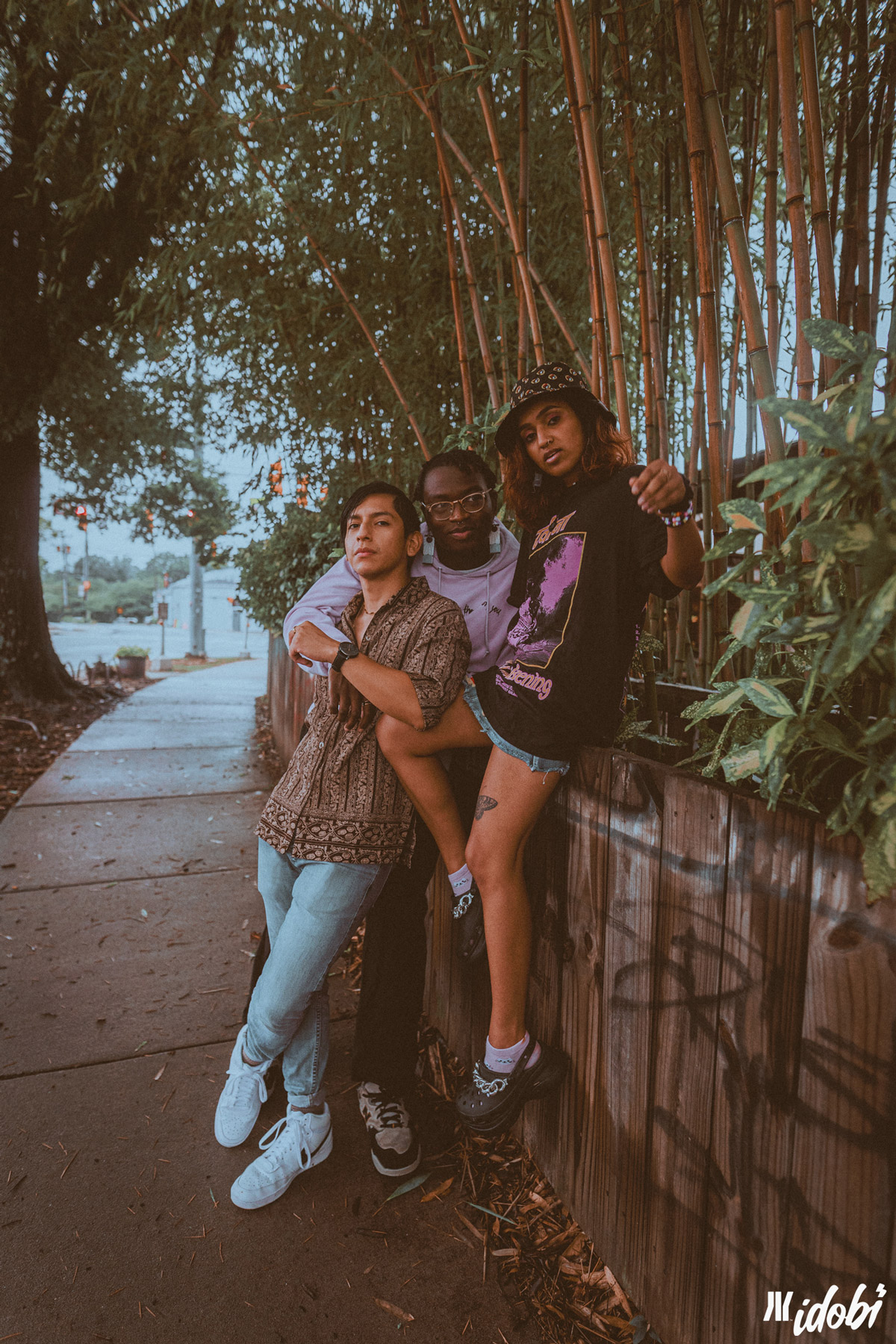
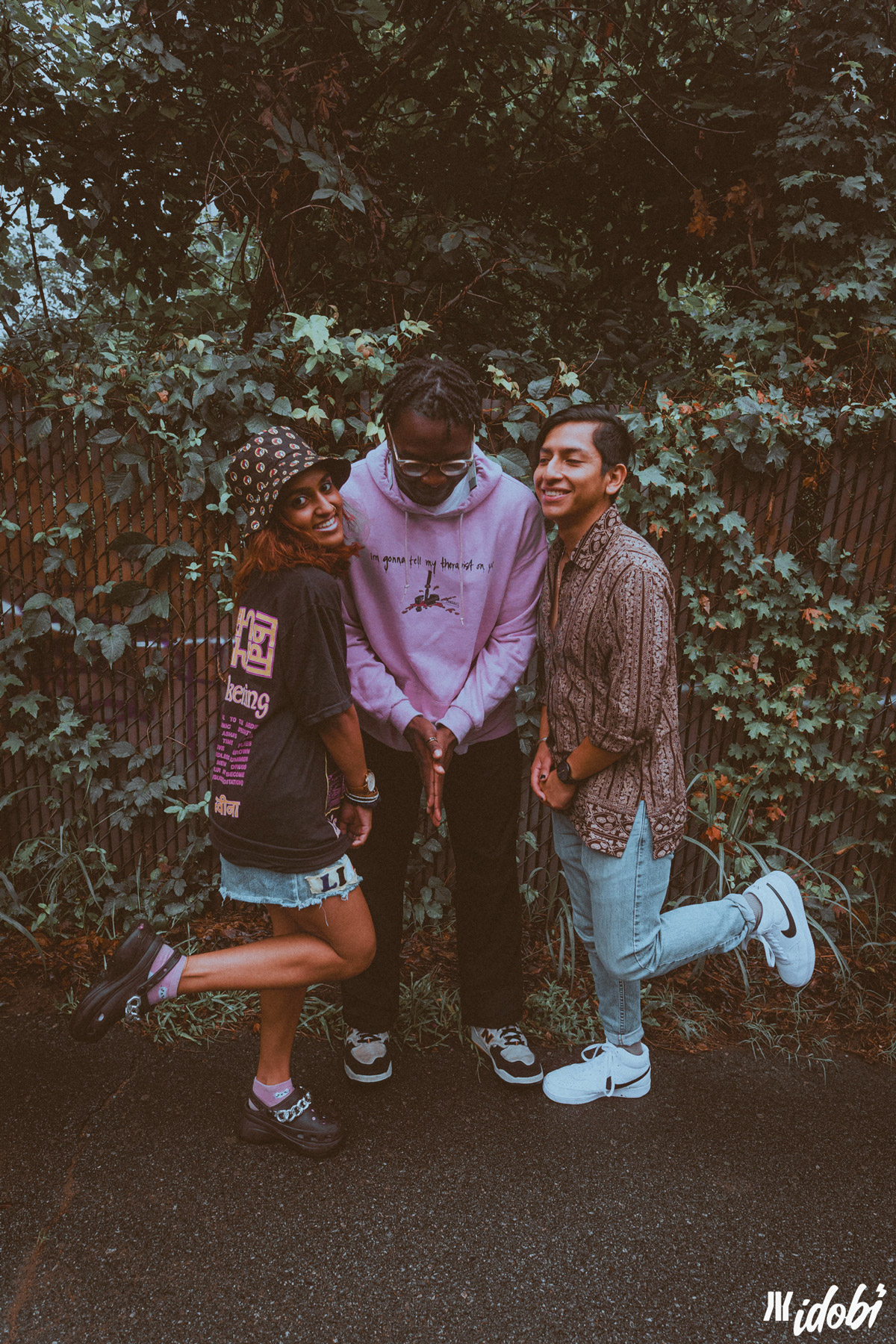
“It got canceled the day it was supposed to start,” Kumar says ruefully. “We had released “on thin ice” and then we just kind of disbanded because of everything that was going on.” Despite the pandemic putting their touring dreams on hold, it unexpectedly gave them a chance to grow their audience. “We all graduated [college] in the middle of the pandemic, some of us found jobs at some point but we were just playing and practicing twice a week. And then “i’m gonna tell my therapist on you” was on Twitter and people started actually listening to us and then we got emails and we were like, ‘Guys, I think we’re a band’.”
Their first official show once they gained that bit of traction was last June. “This local organization, City Beach Baltimore, was putting on an outdoor show and they reached out,” says Vallejo.
“It’s not a yearly thing, they decided to put on a day-long show with a bunch of artists,” continues Kumar. “It was hot as hell and they were roasting a pig so there was smoke in the air, not counting all the regular smoke that’s in the air so that was fun.” But there was a bright side: “People came to see us, which was like the craziest thing ever. We didn’t expect that but that was like the first show we played [for] anybody who we personally didn’t know, who listened to us.” They joke that the only reason people stayed for the Pinkshift set was because, “We got the privilege of being sandwiched in between artists that people cared about.” I point out that those are often the best sets at festivals, the bands you don’t know but happen to catch in between other acts and they remark, “Yeah, I guess that was our first festival, I never thought about that.”
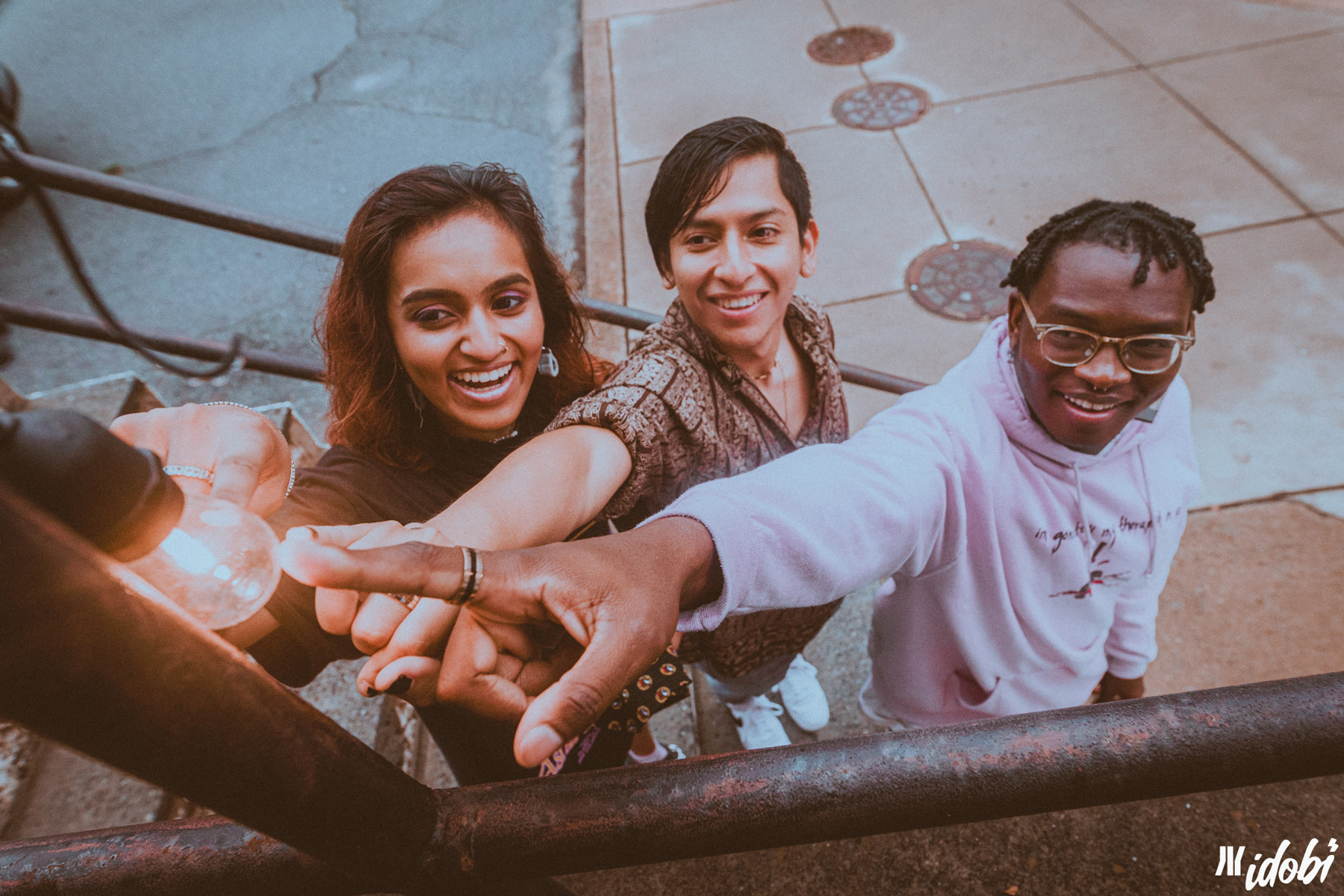
While they do seem to be drawing decent crowds at live shows—Pinkshift was on a few dates of Sad Summer Fest last year, not to mention opening for PUP this past spring—the band has big dreams. “After seeing the lineup for Outbreak Fest…I was like, that’s cool, I’d do that,” says Kumar. Vallejo agrees, adding, “I would like to play whatever the next Warped is. Like maybe not the exact organization but like the ethos of the bands being very communal…I definitely want to play a festival that has that sort of vibe.” Other festivals on their bucket list include Riot Fest, Download, even Coachella or Reading & Leeds. “I feel like I want to play Reading & Leeds because that’s where I always see live performances from [online],” says Kumar.
“There’s people that actually believe in this music enough to literally invest in it…”
Since Pinkshift recently went to the UK to play Slam Dunk, I ask if they’ve noticed a difference between audiences and if they still feel like they’re too new to really compare. Kumar mentions, “I feel like people [in the UK] like rock music a little bit more? I don’t know, I got that vibe just in general.”
Houngbedji joins in. “We were talking to our tour manager when we were there, they were like ‘people in the UK don’t like being told what to do’. It was after our first show which had been replanned and there wasn’t really any promo for it so the people that did show up didn’t really know who we were. But I remember watching the video from the crowd at Slam Dunk and it was really interesting, there’s a part of the song that they clap to and in the UK, they were clapping to the drums, not like in the US where they clap to the tempo.”
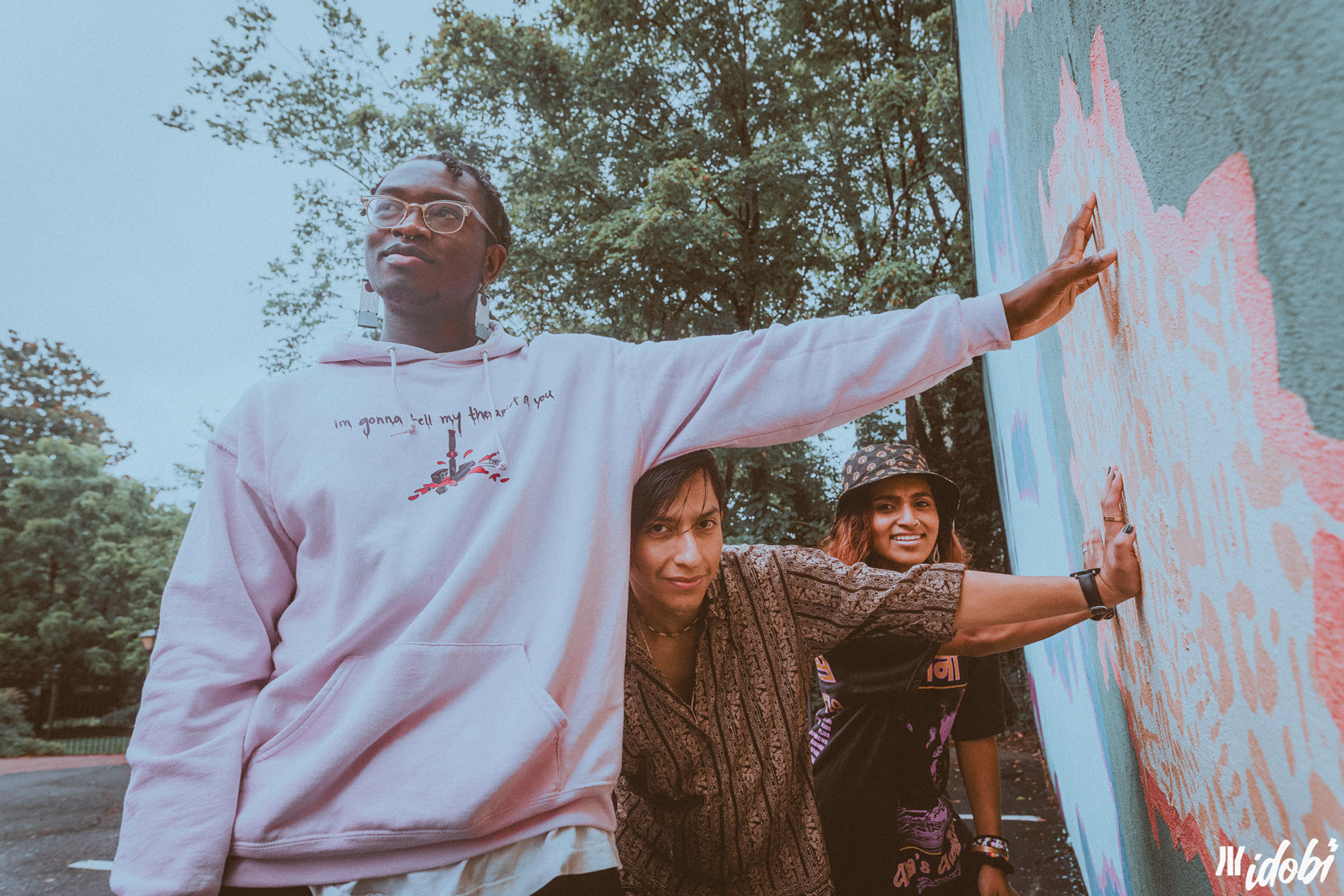
Vallejo adds, “They seemed to like the heavier songs.” He gives the example of the small show they essentially played for free, where people were pretty chill during Twitter’s favorite ‘therapist’ until, “We played a newer song, it’s more hardcore, and people were really getting into it.”
Although they’re often grouped into pop-punk round-ups or lists, Pinkshift considers themselves to be a rock band—the most “comprehensive” genre, as Kumar puts it—which allows them to explore those heavier sounds. Having recently signed to Hopeless Records, a label I tend to think of as very pop-punk, doesn’t mean they’ve changed their sound or general attitude towards making music, though. “It’s fucking cool,” says Kumar. “We basically just have so much more validation. Before, we’d be like, oh we’re going to do this and hope for the best. Now it’s like, ‘hey guys, we want to do this’ and they’re like, ‘let’s get five people that can help you with that’.”
I really noticed Pinkshift start to make waves last year when they popped up on my Twitter timeline and I wasn’t the only one. Other labels approached them but Kumar says Hopeless was always the one that made the most sense. “It’s been really nice, they’re really supportive and they believe in us.”
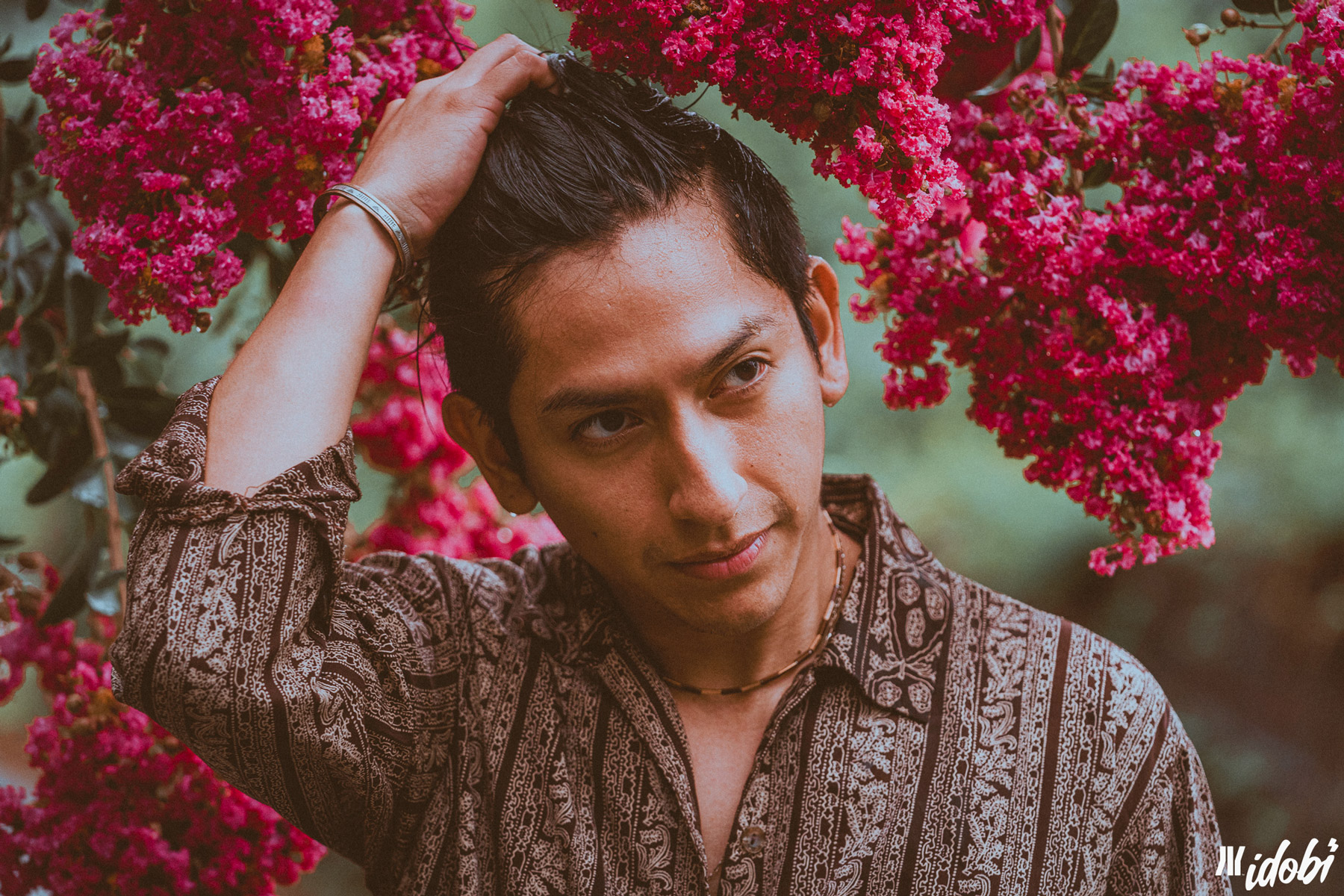

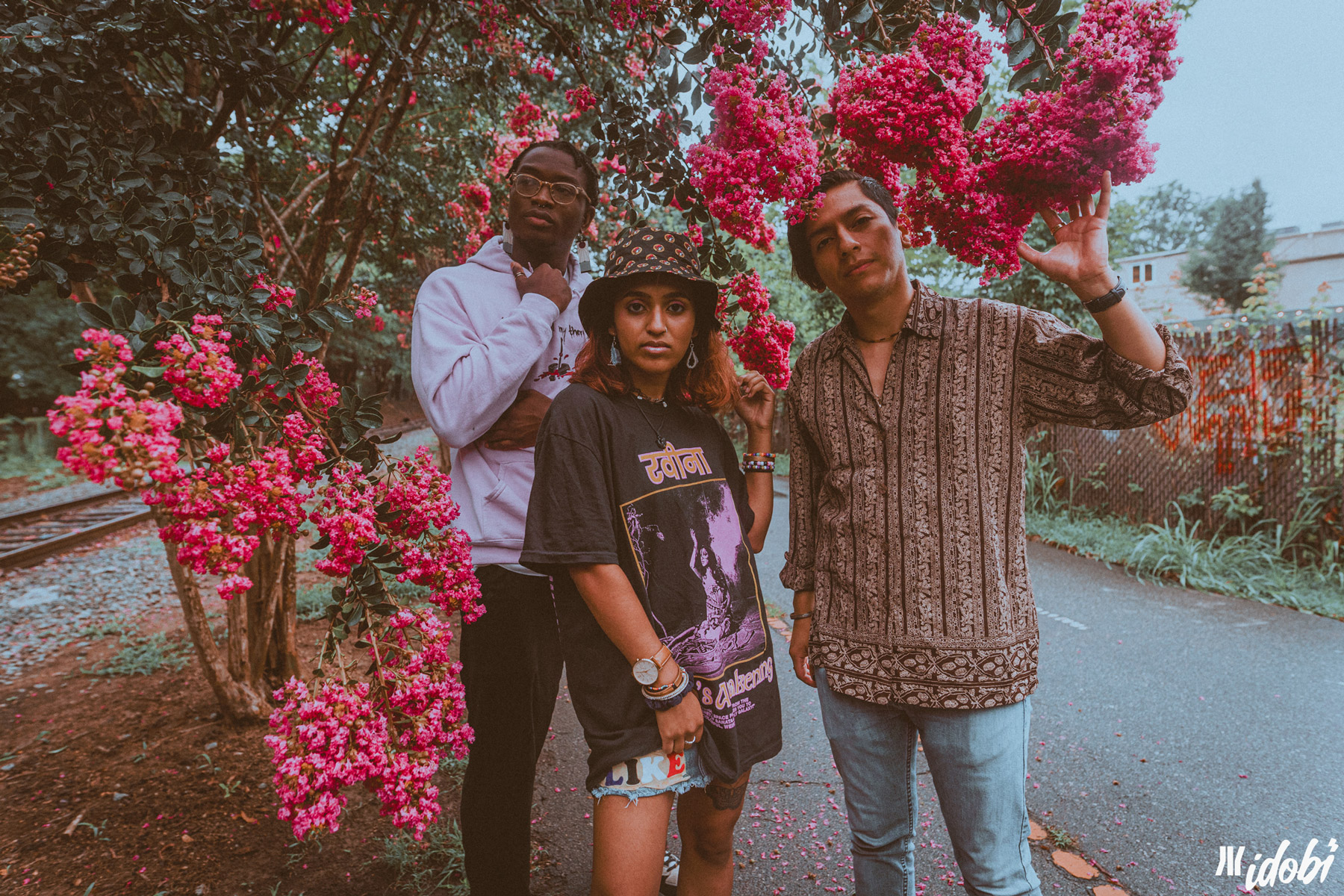
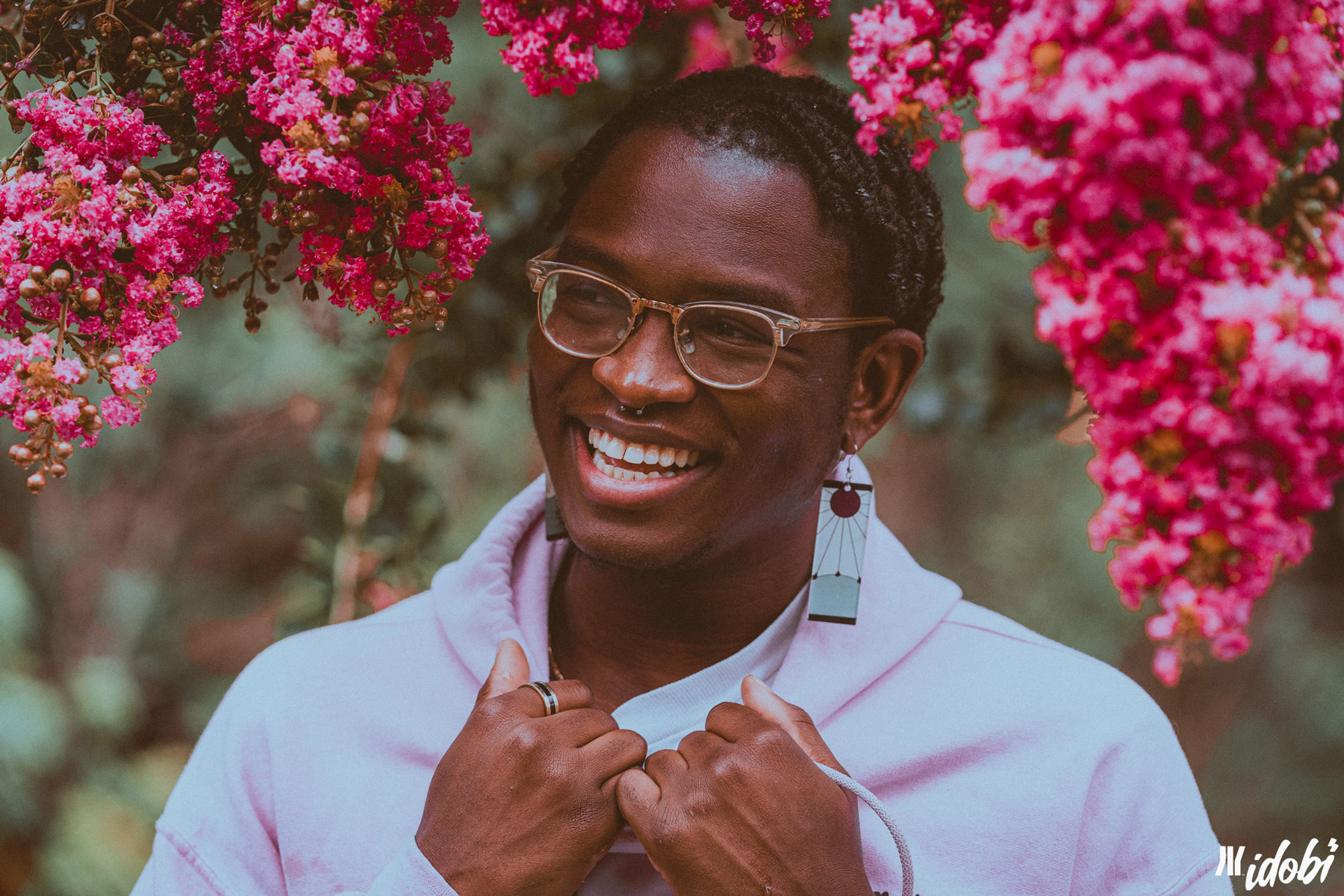
“It’s like an extra support system—practically but also mentally and emotionally like there’s people that actually believe in this music enough to literally invest in it,” says Vallejo.
Kumar confides, “One of the things we were concerned about when we were talking to labels was like, are we the diversity hire? We’re not trying to do that because they’re not going to know how to support us in the right way. But with Hopeless, it really felt like they understand what we understand ourselves to be and they fully support and appreciate that. We really like their vibes…a lot of them have a really good sense of humor.”
The backing of a label definitely helps when it comes to promoting and sharing content but for a band that really took off on Twitter, Pinkshift are already pros at knowing what their fans want. “I feel like we’re pretty open [online],” says Vallejo. “When it comes to our creative process, we want to do more live streams, share what we’re doing.”
“I think we just want to hang out with people,” Kumar adds. “If we’re done practicing or just like, ‘what do we do now,’ we just go on live to talk to people. I think it’s also just that people follow us so let’s say hi, let’s see what they’re up to.”
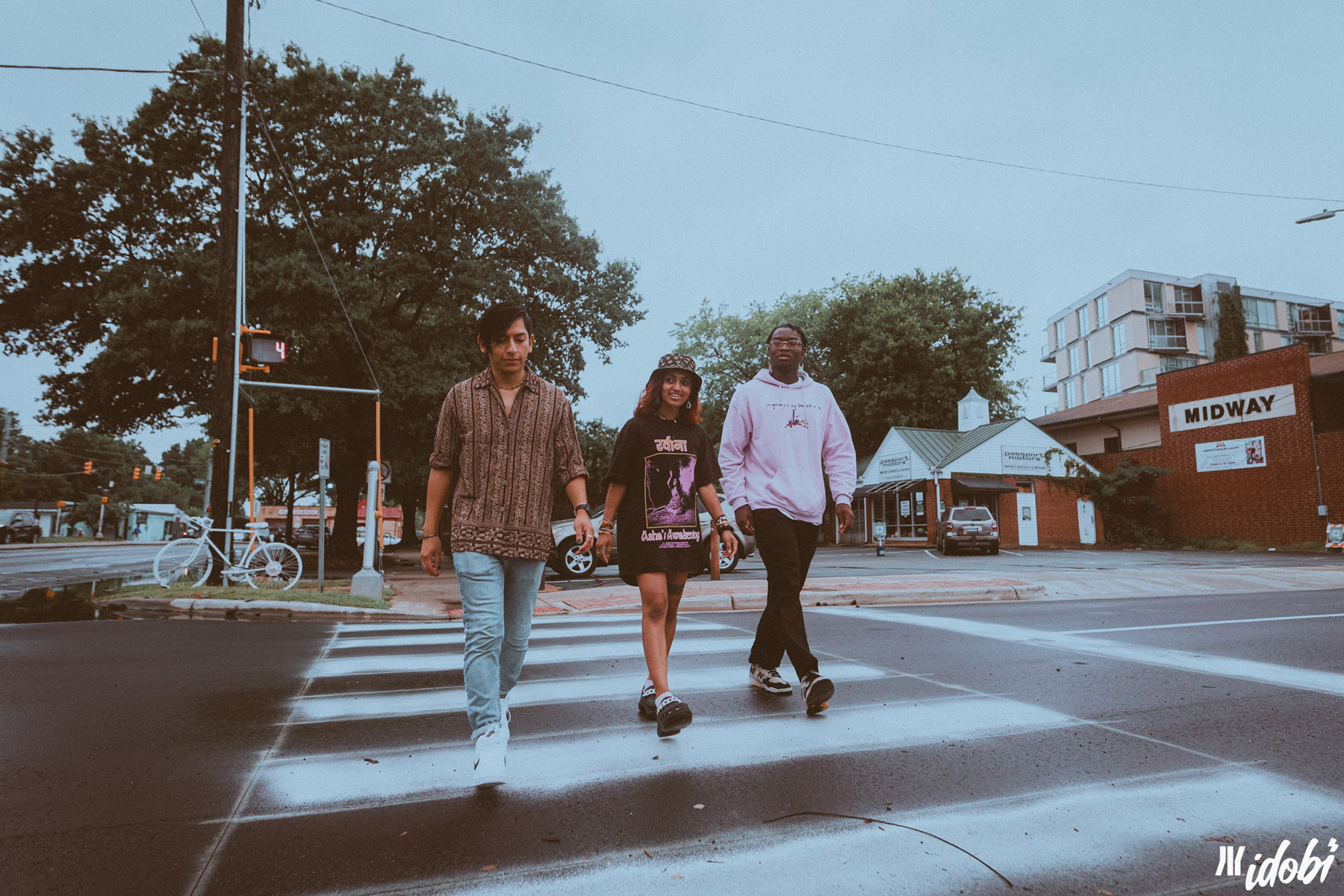
Kumar especially feels like they use Twitter in a “manic” way—“I overshare, I just post all my thoughts,” they laugh. For Vallejo, it’s the exact opposite of what he was like in middle school. “I never wanted anything to be online where I look back like ‘why did I do that?’ I’m just starting to want to be a bit more active.”
The three of them joke about how the band account is constantly shitposting—often when Houngbedji has the reins—but they had to take a break when they started to make major announcements. Personally, I find it entertaining when a band account goes a little rogue or doesn’t take themselves seriously and it seems like Pinkshift feels the same way. “We just want to connect with people and try to talk to everybody that we can,” says Kumar, noting that if they happen to go live on the band account while bored, Houngbedji or Vallejo, “Will see and request to join and then we’ll just hang out and it’s like a public FaceTime.”
“Being vocal and taking up space when it’s appropriate is what we try to do.”
Given the general dumpster fire that is the world right now, it’s hard to ignore the more infuriating things going on (especially in the US) but for Pinkshift—a band made entirely of minorities—they don’t feel as pressured to speak out as their white counterparts. Kumar is thoughtful when they answer. “It’s hard, the kind of space we occupy, it’s already very obvious what we think but we try to share resources and things like that. It feels fake to do something because everybody’s talking about it…saying our opinion on the matter, you already know there’s no point in us contributing to the noise on Twitter because Twitter doesn’t really do much.”
“Our existence is already political,” Kumar continues. “So being vocal and taking up space when it’s appropriate is what we try to do. It’s necessary if you’re a band full of a bunch of white guys, like yeah, maybe you should be clear about where you stand but there’s only so much that you can do online.” Later, they admit that when it comes to social media, “We’re still learning, trying to figure out the best way to use our platform,” without contributing to the noise.

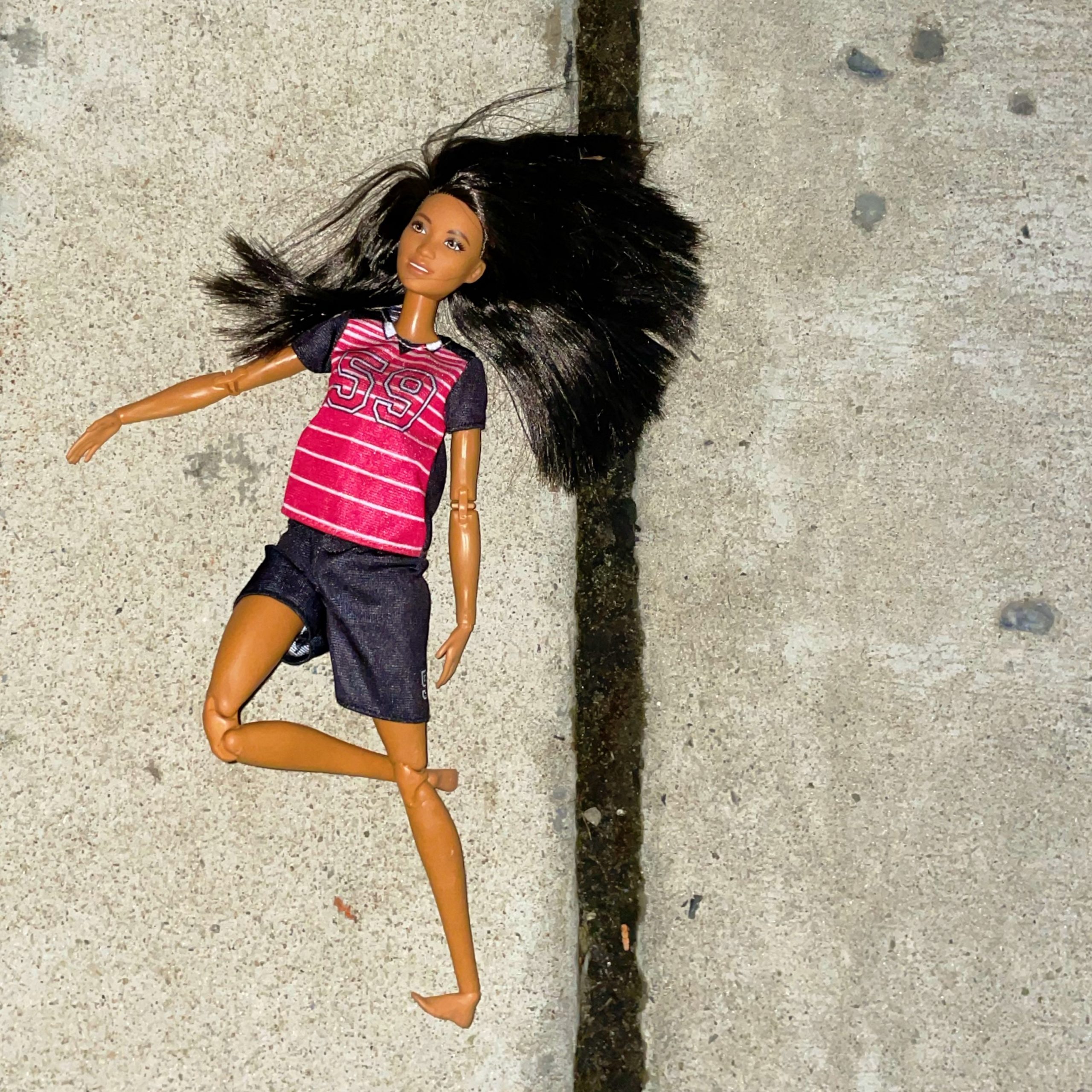
—
For Pinkshift, it’s less about activism on social media and more about having those conversations and creating that space at their live shows. “If we have a show and if we can afford it, we’ll try to do a fundraiser with a merch item for the community,” says Kumar.
Vallejo names Destroy Boys as an example of what Pinkshift strives to do. “During each date of their tour, they invited a local organization or local activism group who would speak before Destroy Boys and would have a table next to merch.”
“I think things like that just feel so real and material and it was really inspiring to us,” adds Kumar, who would love to do something similar when Pinkshift starts touring again. “It was a different local group each time and they would encourage people to find out more. It means so much more to build local efforts.”
For Pinkshift to start headlining tours, they’ll need to release more music, something I’m eager to hear more about. “We’re releasing a full-length album this year,” Kumar promises; in fact, they just announced that their debut, Love Me Forever, will be out October 21, 2022. I ask the band to choose a favorite song from the album and they’re cagey with their responses, giving me track numbers rather than titles.
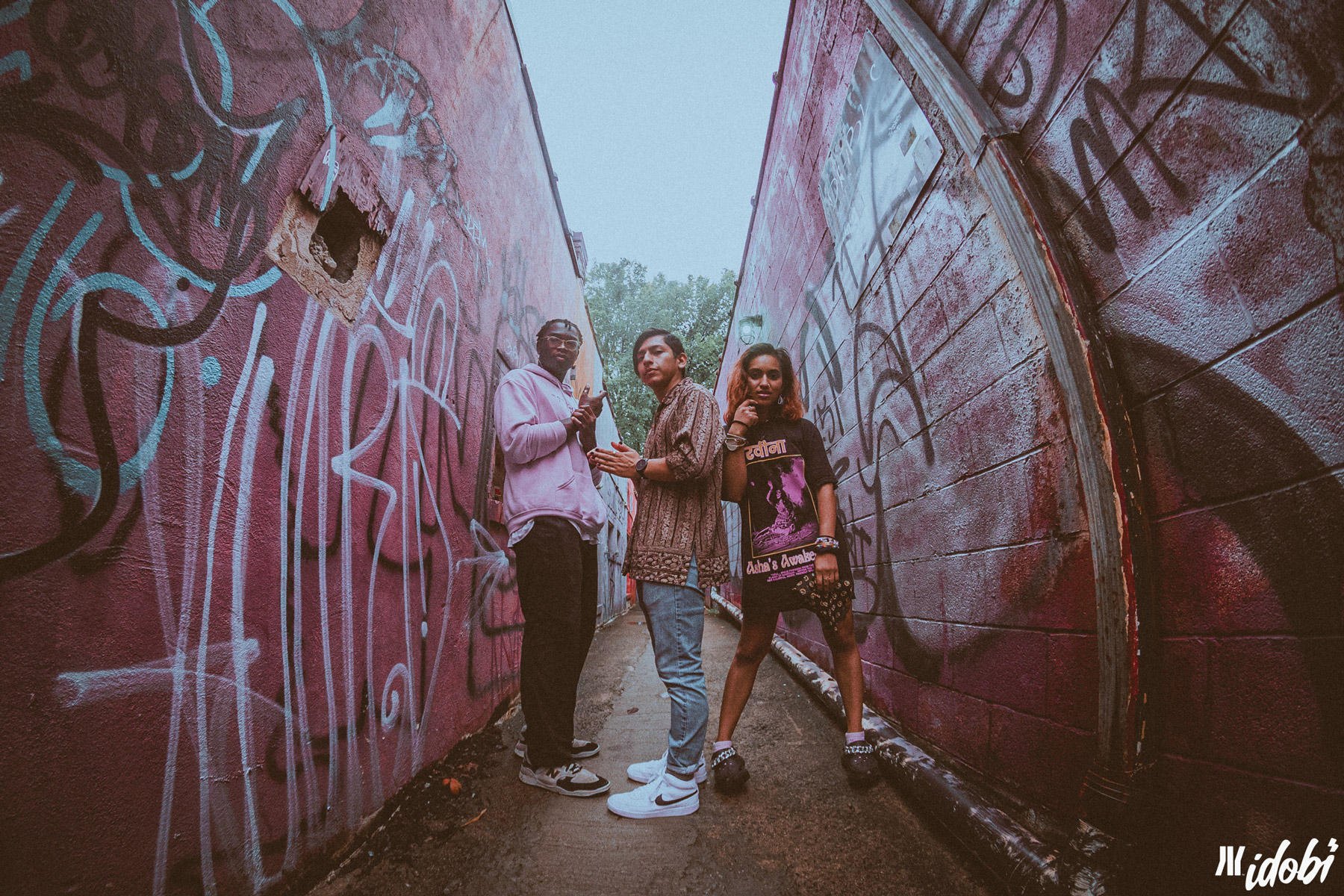
“Probably Track 9,” says Vallejo. Houngbedji is excited for Track 3, “Because people that have seen us live will know it.” They both agree that Track 12 is, “Going to be so big.” Kumar scrolls through the album on their screen, trying to decide between their new single, “i’m not crying, you’re crying”, and Track 7 from the album, “It’s completely different from anything we’ve ever done before…people are either going to like it or hate it.”
“Your band should be treated like family.”
The longer I talk to Pinkshift, the more convinced I am that they are destined to be a major player in the rock scene and I find it fascinating that they draw their influences and inspirations from the people around them, including their contemporaries. “People always ask who inspires you and I’m like, oh, it’s my friends,” says Kumar. “I feel like the most inspiring thing is just what’s going on, like our friends who are just fucking killing it. I genuinely love to see it.” They name-drop Meet Me @ The Altar and Jhariah as artists who are working hard and bringing something unique to the table, as well as Nova Twins who I find intimidatingly cool. Kumar assures me they’re, “So sweet, they actually came up to us at Slam Dunk, we were too nervous to go up to them.”
Houngbedji mentions Turnstile as a band that has inspired the trio lately, not just as a fellow Baltimore band but, “How things have been going for them the last year, that’s so insane to see.” In fact, Pinkshift went to see Turnstile last time they played Baltimore—“We came back from tour and had bought tickets to see them months ago”—and were so blown away they’re already planning on seeing them again this fall. Houngbedji credits Vallejo as being the first one to jump on the Turnstile bandwagon, which Vallejo doesn’t remember doing, causing the other two to tease him about how often he introduces them to new music.
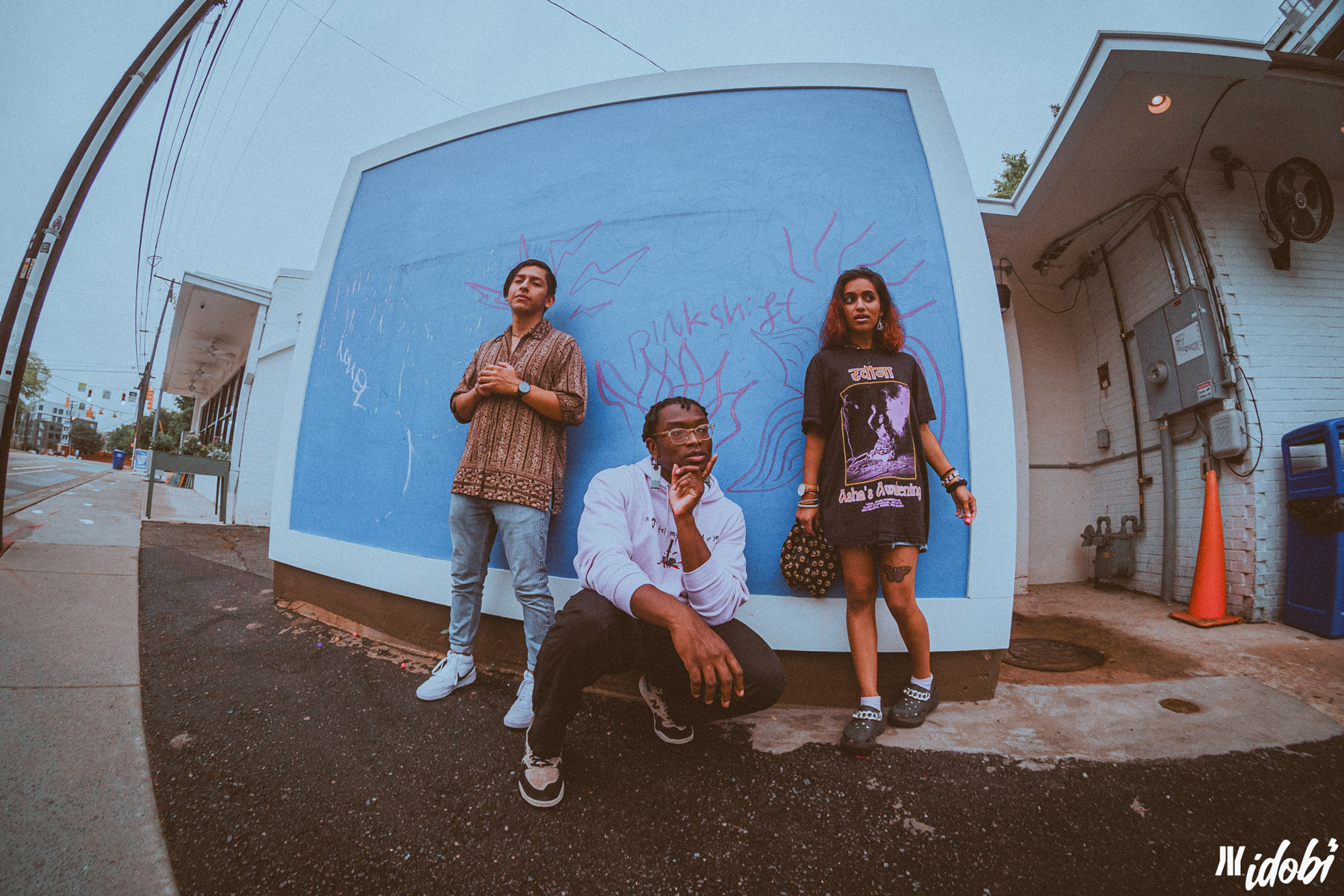
For such a young band—both in age and in terms of how long they’ve been making music together—Pinkshift has picked up a number of lessons over the last couple of years:
Vallejo is the first to contribute thoughts on what they’ve learned, “If you’re trying to find new people to play with and invest your time and, like emotional energy into, they should know that your band should be treated like family. It’s very rewarding if you have the outlook of like, treat these people like a family member. That way, you can develop really efficient communication and learn to not just love each other but also learn to like each other’s ideas.”
“And even if you can’t find the right people automatically, that doesn’t mean that you can’t start writing…you can start writing whenever,” says Kumar. “I think one of the things that I wish I had been a little bit more confident with was, like, actually hopping on GarageBand and figuring it out.” They take a minute to pay tribute to Vallejo, “He can write whole instrumentals and stuff and he was just one person. I feel like anyone could totally do that…it’s so much easier, then you can get your ideas out and it’s like your songs are real, even if you’re the only one playing them.”
“Even if you only have lyrics that need a melody, that’s still a song in itself,” adds Vallejo.
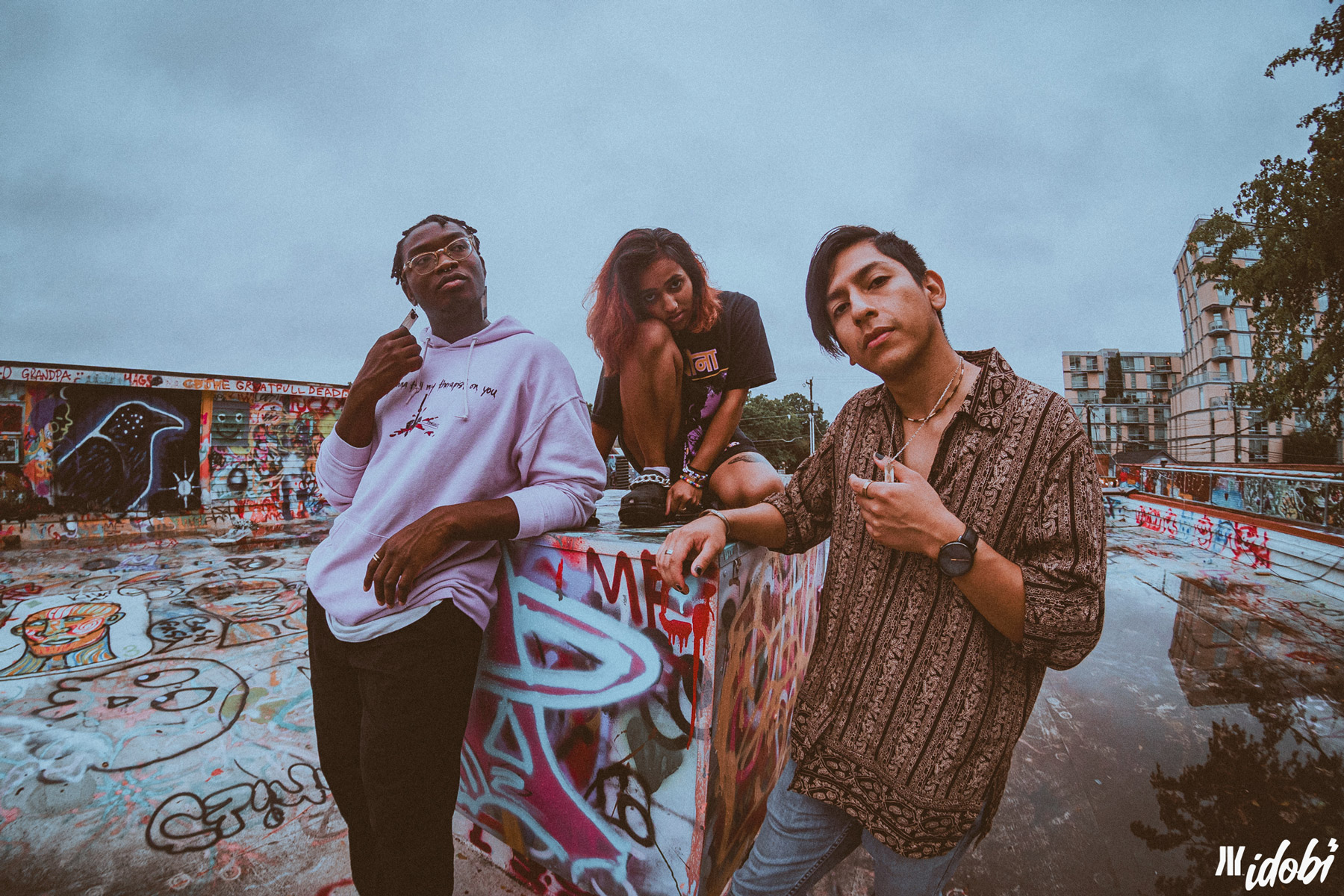
Houngbedji agrees. “You can take steps in terms of setting a goal, like how much you want to write…and being able to give yourself the room to improve and learn and not compare yourself. Just going on your own personal journey, if you’re starting out in music and want to get your ideas out there. Figure out which method works best for you because there are so many different ways to write a song.”
“You just have to actually write your ideas down,” says Kumar and as someone who works with a lot of writers, I really feel this. “Writing songs is super cringy and you just have to get over it. It’s like ‘oh man, I don’t want to write this down, it’s so cheesy or so corny’. But I’m telling you, everybody’s favorite song is the cringiest, corniest thing that you’ve ever heard in your life.” They laugh. “Half the battle is just getting over the fact that it’s cringe to write songs and express your emotions.”
For the most part, Pinkshift has gotten used to feeling awkward about writing lyrics but one thing they can’t get over yet is trying to explain what they want to see in a music video. “Like ‘oh yeah, we’re gonna do this and then this and then it’s going to look like this….’” Luckily, their last director, Daniel Zawodny, really got what they wanted to do for their single, “nothing (in my head)”, and the video takes an already powerful song to another level.
Kumar sums it all up with a simple yet effective statement: “You can do it.” By the time we wrap up our call, I’m absolutely convinced that I can do anything I set my mind to and it’s all thanks to Pinkshift’s example.
—
Check out photos of Pinkshift at their show in Carrboro, NC!


